Narrow the Gendered Data Divide by Investing in Women
As we approach Beijing+25, awareness about the literal value of gender equality continues to rise—but actual progress has stalled. The 2020 World Economic Forum Gender Gap Report reveals women’s under-representation is most acute in data, digital, and technology fields that will drive economic growth over the next decade.
According to the report, just 12 percent of cloud computing, 15 percent of engineering, and 26 percent of data and artificial intelligence professionals are women.
Closing the gap between STEM education and women’s economic participation and the growing global digital economy will be critical to gender equality, particularly in emerging economies. These joint objectives directly connect to the Millennium Challenge Corporation (MCC)’s mission, and are shared by Development Gateway (DG) and others. We have found that progress toward these goals requires a combination of institutional commitment and a focus on sound policy, outcome-oriented programs that leverage partnerships, and iterative designs that embrace local know-how.
Identify Institutional Leverage and Support Policy Change
MCC’s key impact opportunity is financial assistance through compact and threshold grants. To become eligible for these grants, countries must pass the MCC scorecard, made up of indicators linked to good governance, economic freedom, and investment in people, including an indicator on Gender in the Economy. The scorecard incentivizes countries interested in securing MCC funds to make policy improvements.
For example, in 2012 Côte d’Ivoire met only 5 out of 20 MCC scorecard indicators. With high-level political buy-in, Côte d’Ivoire formed a national committee to achieve eligibility and sought technical assistance from the World Bank to address gender-discriminatory policies. After signing its first compact in 2017, policy momentum hasn’t slowed.
In April 2019, the Ivorian government established a new gender unit was established within the Ivorian Ministry of National Education, which will focus on improving education outcomes for women and girls, to strengthen the workforce, and meet private sector needs. MCC investments will also build a national education management information system to provide sex-disaggregated data and enable gender-analytics.
In parallel with better policies and deeper understanding of women and girls’ specific needs, it is now important to make data use and data-driven innovation a popular choice for them.
Align Program Goals and Leverage Partnerships
In 2018, we continued to build on this progress while also advancing select priorities of the President’s Emergency Plan for Aids Relief (PEPFAR) in Côte d’Ivoire through the PEPFAR-funded Data Collaborative for Local Impact program, and in partnership with Des Chiffres et Des Jeunes (DCDJ) led by DG.
DCDJ established a Data Fellowship Program, which competitively selects and equips young Ivorians with data skills. These fellows are then strategically placed within ministries, non-government organizations and other partners, and enable the use of evidence to catalyze positive change, including the use of data to support HIV/AIDS prevention and linkage to treatment. The fellowship also builds marketable data skills that can support employability and long-term careers for youth.
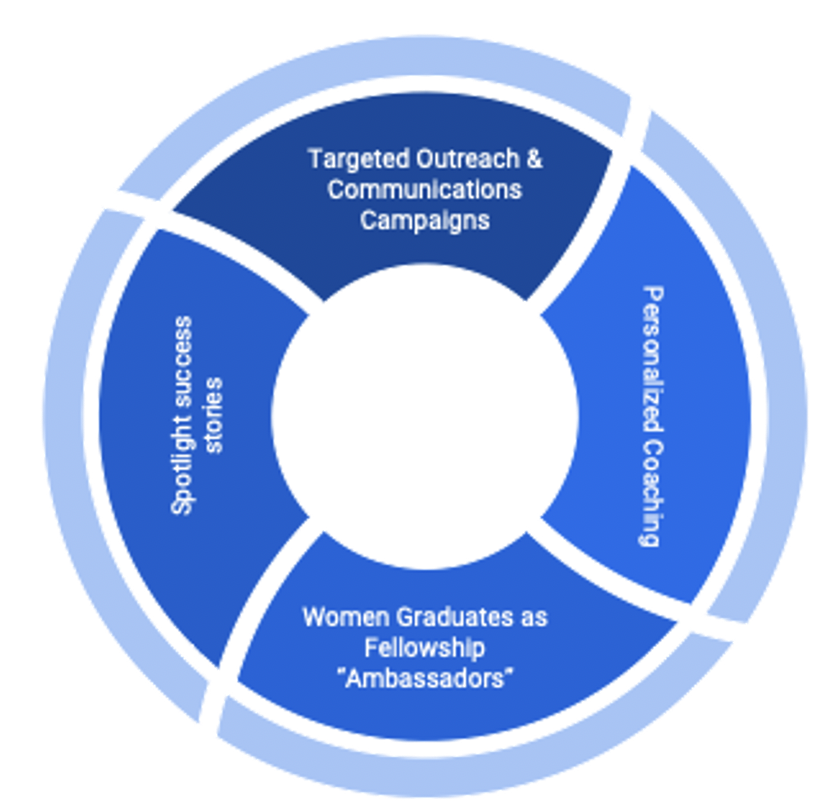
Ensuring gender parity requires targeted outreach, program flexibility, and local insight
But we wanted to ensure that the Data Fellowship and skills training did not perpetuate the education and labor gap in Côte d’Ivoire. Only 7.3 percent of women are enrolled in higher education, compared to 11.2 percent of men. Across technical and scientific fields, women make up only 16.5 percent of the Ivorian labor force. Mirroring this national average, only 17 percent of applicants to the first cohort were women. In addition to many women not achieving the BAC +2 education level needed to enter the program, women also faced a social stigma and time disincentives.
Our goal was to reach gender parity. But how?
Adopt an Iterative Approach and Involve Local Know-How
Our teams took an iterative approach grounded in international good practices and context-specific bottlenecks identified by local partners: testing outreach and communication methods for promoting the fellows program; ensuring placement workplaces value the work of women fellows; and providing personalized coaching and support. Additionally, our local partner COS-CI’s pre-existing deep local network helped us reach women’s community groups, NGOs, and interest groups to better recruit and retain women. With a strong understanding of their specific needs and concerns, we tailored the program and our mentorship role to meet women at their needed areas of improvement.
As a result, women’s participation reached near-parity by the third cohort (47 percent women and 53 percent men). To reach this level, it was important for women to hear directly from each other the support and value offered by the fellowship: encouraging others to pursue it and demonstrating how it has enabled them to contribute to pressing HIV and health issues through improved data use. It also helped that our local training partner, SEJEN CI, had women data science trainers who were role models to nurture and encourage this Ivorian data talent.
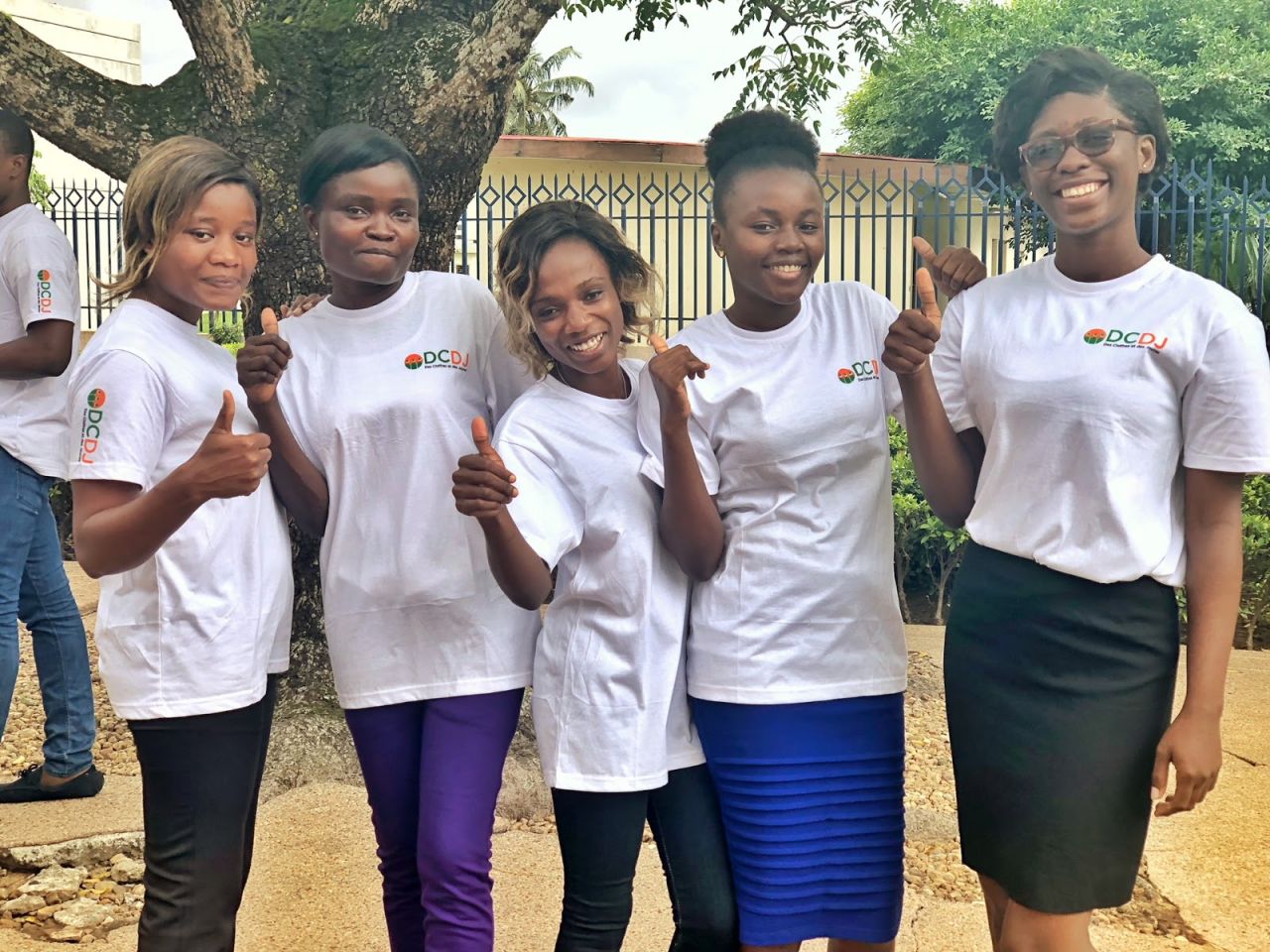
Some data scientists of the DCDJ Fellowship, encouraging other women to join the program
Our Call to Action
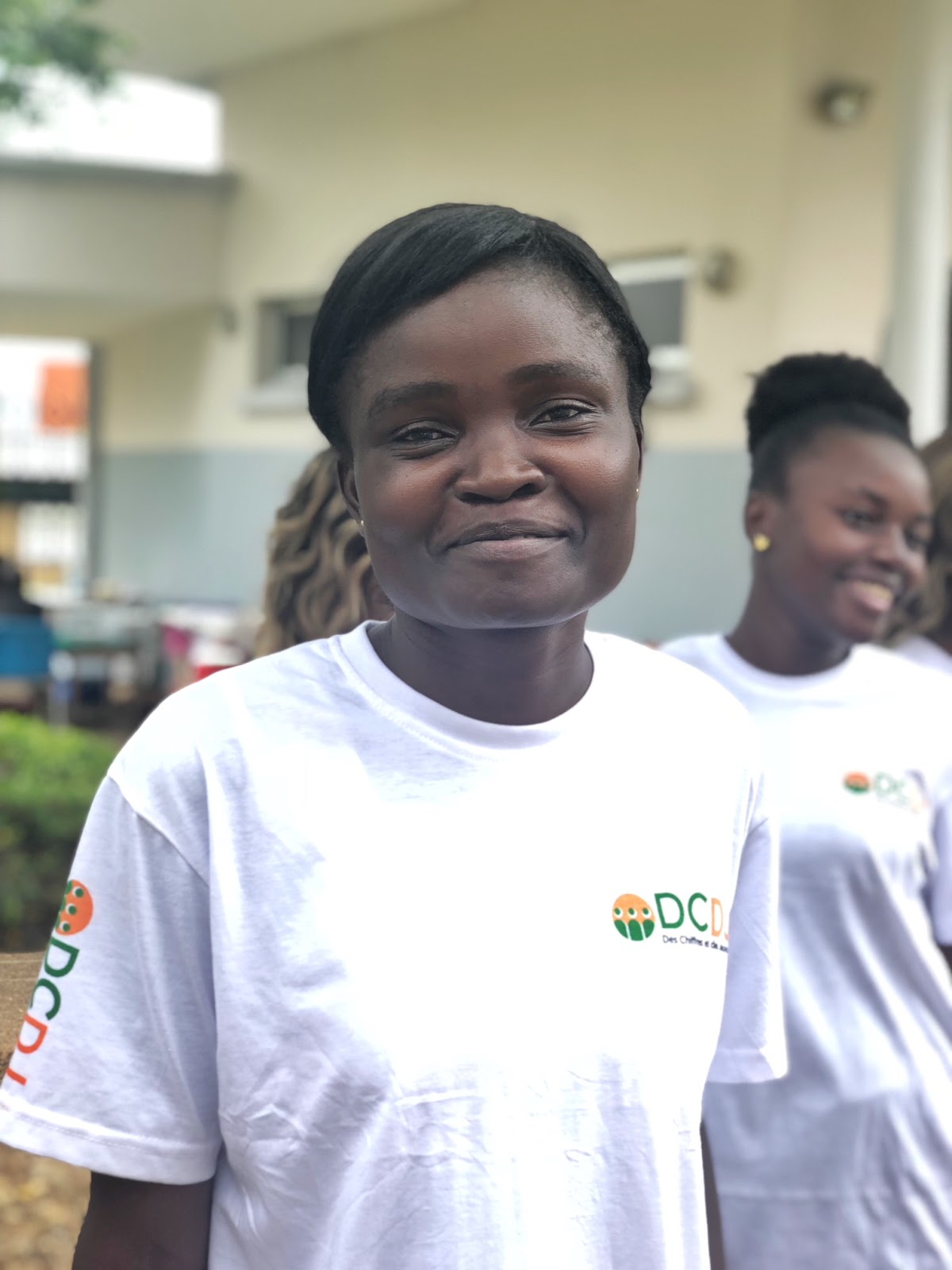
So far, Côte d’Ivoire has closed the economic participation gap 54.5 percent of the way. Despite some progress, more action is needed to reach parity. Even more effective than the digital and data use tools that will drive the economy are the people—specifically the women—with clear, intentional pathways to positions of power in data and technology roles. With more women in data-focused positions of power, the digital tools and programs come to life, and solutions are more effective.
Onwards from Beijing +25, we will continue to balance the benefits of digital programs with the risk of perpetuating existing structural inequalities. Specifically, this means taking concrete action steps—across government levels to marry bottom-up and top-down strategies that better equip women to seize leadership opportunities of the future workforce.
Partnerships like MCC and DG, as well as local and national governments and private sector and technology firms, have critical roles to play as we continue to learn from our peers, explore analysis frameworks, and push to close the remaining gender divide.
Share This Post
Related from our library

The Cancer-Tobacco Link: Using Data to Drive Stronger Tobacco Control Policies
As we observe World Cancer Day today, it is crucial to recognize the significant role smoking plays in the global cancer epidemic. Tobacco use is the leading preventable cause of cancer and cancer-related deaths worldwide, necessitating a dynamic, multidisciplinary approach to tobacco control interventions. DG’s Tobacco Control Data Initiative (TCDI) contains country-specific websites designed to
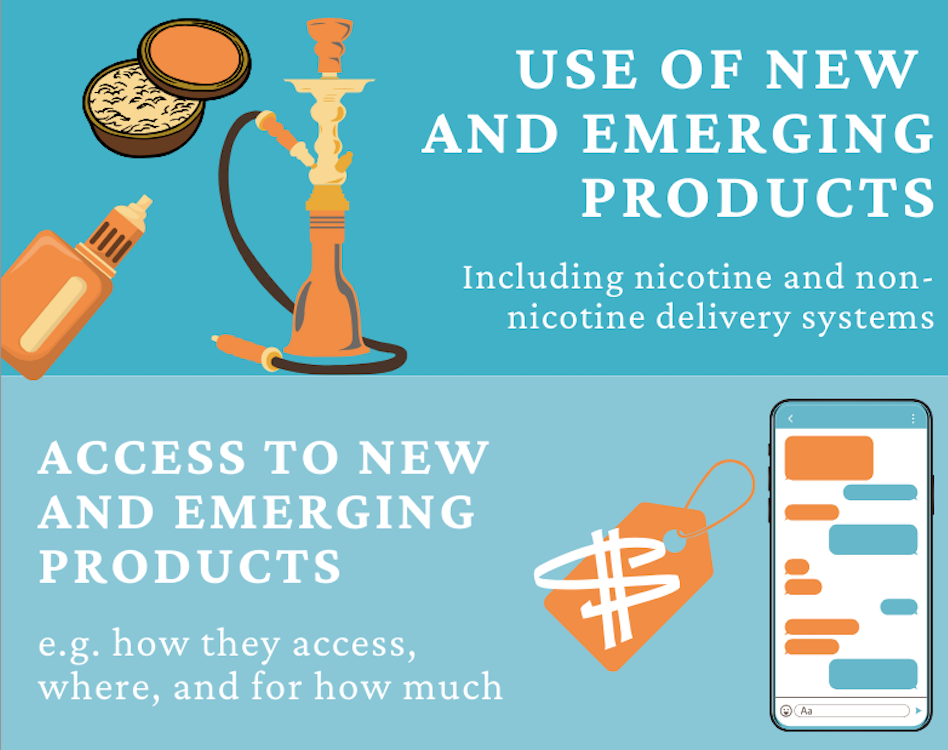
Diving into the DaYTA Program’s Data Collection Process
This blog explores key insights from the DaYTA program, offering practical guidance for researchers on effective data collection, overcoming field challenges, and leveraging local partnerships to enhance tobacco control efforts. This piece is especially timely following DaYTA’s workshop convening all 3 study country stakeholders to review the survey results and strategize on how best to disseminate this data to target audiences. This workshop took place from in Lagos, Nigeria, from November 18-20th.
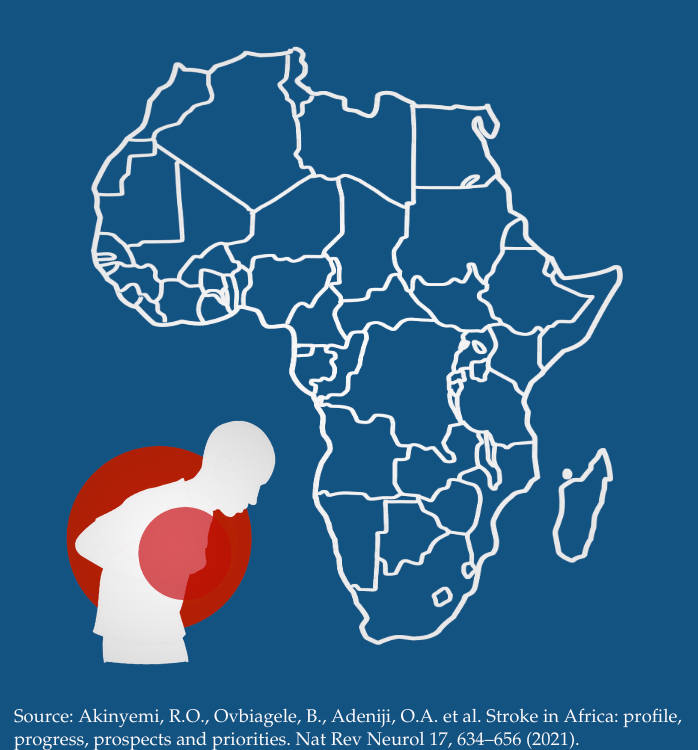
More Smoke, More Stroke
In honor of this year’s World Stroke Day, observed annually on October 29th, this piece aims to raise awareness of the substantial burden of non-communicable diseases–particularly stroke incidents–using the case study of Nigeria, one of the main tobacco production hubs on the continent, in addition to Kenya.